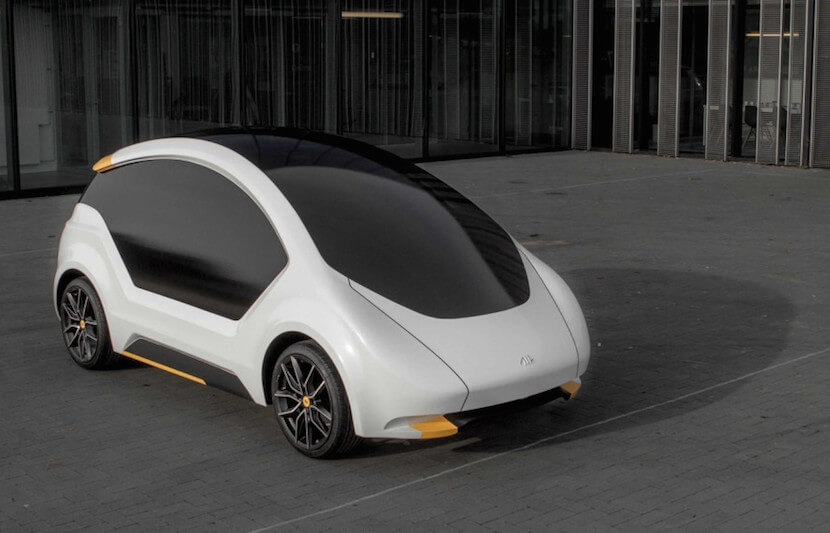The world is in need of an automotive renovation. Fuel cars are expensive to own and repair, and are constantly pumping toxins into the air. Companies like Uber and Lyft have revolutionized the taxi industry and limited personal car usage, but they are expensive and do very little to help the environment.
Now, a Dutch start-up company Amber, has developed fully-electric, self-navigating mobility technology capable of reforming people’s relationship with automation and travel.
The University Network spoke with Kate Brunton, Amber’s chief marketing officer, to gain insight on the company.
The company was founded based on “the need for a feasible alternative to car ownership,” said Brunton.
The problem is that owning cars (especially fuel-powered cars) is bad, but there’s no real alternative. It’s bad for consumers, because the cost of ownership of most cars is high, and it’s bad for the environment because it’s harmful, and it’s inefficient. Most cars just end up spending 90% of their time standing still.
Amber understands what consumer wants and strives to deliver exactly that. “We recognize that what consumers want from a mobility service is to be able to go anywhere they want, whenever they want, and they don’t want to pay a fortune for it.”
Amber sells access to vehicles. It outmatches other car-sharing services through cleanliness and accessibility. Amber guarantees that a car will always be close by, clean, and completely functional. The company uses predictive analysis algorithms to gauge where cars will be needed next. Currently, the company uses student drivers to deliver the cars, but it anticipates self-navigating cars in the near future. The navigational technology is not yet perfect, so Amber will call a cab if the car is not there within 15 minutes. As technology advances, cabs will no longer be needed.
At first, the cars will only self-drive at night. This way, they can grow accustomed to the roads and master navigation and safety without dealing with the heavy daytime traffic.
The company has already launched its fully-electric mobility service in “mobility hubs” at the High Tech Campus and downtown Eindhoven. By mid-2018, Amber will be expanding to the Eindhoven/Helmond region, but the company is not bound to any specific geographical area.
“We plan on expanding within the Netherlands and Europe, creating more ‘mobility hubs’ as we go,” said Brunton. “In parallel, we’ll most likely be expanding to the U.S. (California). Long-term, as far as we’re concerned, the sky is the limit. We’ll do everything in our power to see that our service is made available to people across the world.”
Amber’s team recognizes how hard it is for consumers to think financially and environmentally at the same time, but they wish to bridge that gap. “Because we naturally think about our pocketbook and our comfort as consumers, the only way that environmentally-friendly products or services will ever catch on ‘big-time’ is if they can cater to these consumer needs,” Brunton said. “What’s amazing about Amber is that we’re offering the average consumer an environmentally-friendly mobility solution that doesn’t compromise on things like convenience and affordability. In fact, Amber is MORE convenient and LESS expensive than owning a car.”
Currently, Amber is using the BMW i-3, but the company is in the process of building its own car: the Amber One. The company’s car is expected to hit the streets in 2021, and will be able to last a million miles. Current vehicles are limited in their mileage because car companies need vehicles to break down so consumers keep buying them. Amber doesn’t sell cars, so there is no need to limit each car’s mileage.
The company started while its founders were still students at the Eindhoven University of Technology in The Netherlands (EUT). While attending EUT, two of the co-founders created the world’s first modular car. Two others created the Isa, which still holds the record for most sustainable highway-capable car. The company’s founders felt “almost a moral responsibility to bring this technology to the masses,” said Brunton. “That’s why we’re building the Amber One in parallel to offering our predictive mobility platform.”
In the market, Amber anticipates very few restrictions. “We’ve received an overwhelmingly positive response so far from media, supporters, and potential users,” Brunton said.
Operationally, the team will face some adversity. “We have to manage expanding our service and matching supply with demand for mobility,” said Brunton. “Technology-wise, this is possible, but when in the real world, you’re never dealing with numbers, you’re dealing with people, and companies.”
Amber is working with American investors to enhance its capabilities and overcome operational adversity. The team is eager for success, and truly believes that their product is the future of automotive transportation.



